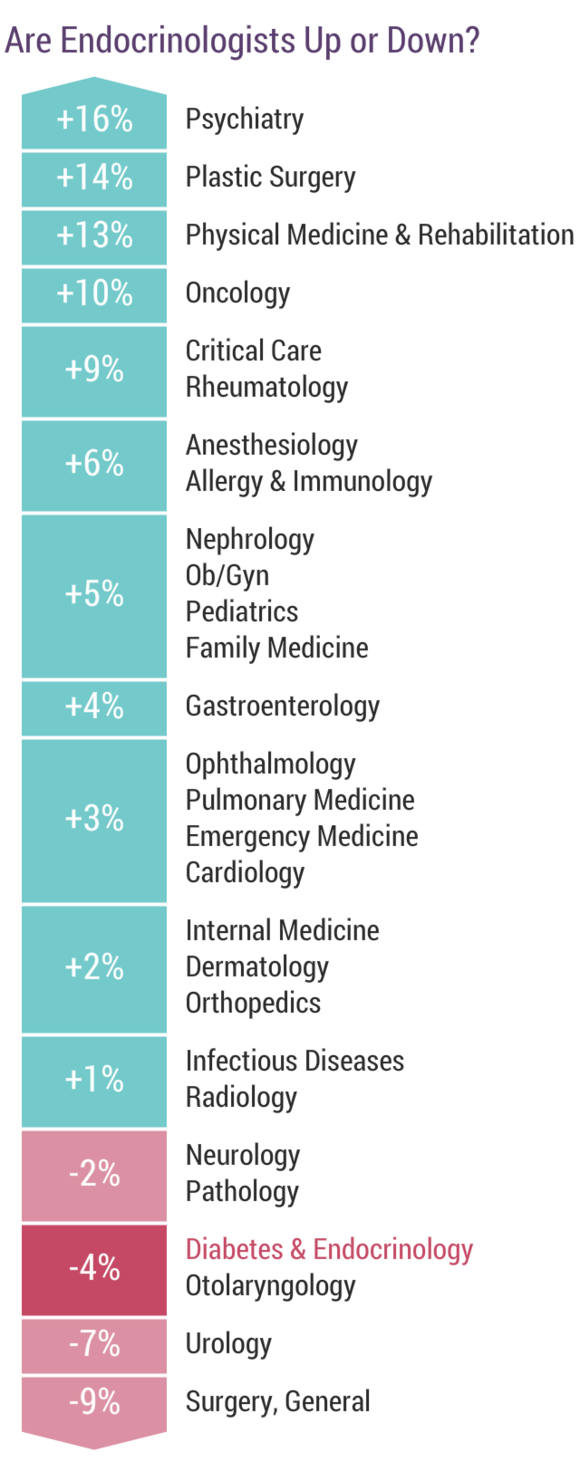Best Endocrinologist Near Me: Locating Top Medical Specialists
Wiki Article
The Science Behind Hormone Law: Insights From an Endocrinologist
The Scientific Research Behind Hormone Guideline: Insights From an Endocrinologist uses an extensive expedition of the intricate procedures involved in hormonal agent policy. Whether you are a medical expert seeking a deeper understanding of endocrine function or a private interested in learning concerning the scientific research behind hormonal agent law, this publication is an invaluable resource.Hormones and Their Features
Hormones play vital duties in the law and coordination of different physiological processes within the body. These chemical carriers are created by endocrine glands and are released into the bloodstream, where they take a trip to target cells or body organs to apply their effects. The functions of hormones are diverse and encompass virtually every facet of human physiology.One of the key functions of hormonal agents is to maintain homeostasis, which is the steady inner atmosphere essential for the body to work ideally. For instance, insulin, a hormone produced by the pancreatic, manages blood sugar degrees by promoting the uptake and storage space of glucose in cells. One more hormone, cortisol, helps the body reply to tension by boosting blood sugar level degrees and reducing the immune system.
Hormones additionally play essential functions in development and development. Development hormone, generated by the pituitary gland, stimulates the growth of bones and cells, while thyroid hormonal agents manage metabolic rate and affect the development of the nerves - Texas endocrinology. Additionally, reproductive hormones, such as estrogen and testosterone, are in charge of the growth and upkeep of secondary sex-related characteristics and the policy of the menstruation
The Endocrine System: An Introduction
Playing a crucial role in the policy and sychronisation of physiological procedures, the endocrine system is a complex network of glands that produce and release hormones into the bloodstream. These glands, including the hypothalamus, pituitary gland, thyroid gland, adrenal glands, pancreas, ovaries, and testes, produce hormones that function as chemical messengers, affecting numerous physical functions. The endocrine system works in conjunction with the nervous system to keep and manage homeostasis, making sure that the body's interior atmosphere stays stable.The hypothalamus, located in the brain, is thought about the master regulator of the endocrine system. It produces hormones that boost or hinder the launch of hormones from the pituitary gland, which consequently controls the task of various other endocrine glands. The thyroid gland, located in the neck, produces hormonal agents that control metabolic process and power balance. The adrenal glands, located atop the kidneys, produce hormones that aid the body respond to stress and manage high blood pressure.

Regulation of Hormone Manufacturing
The policy of hormone manufacturing includes a complex interaction between various glands and responses systems within the endocrine system. Hormonal agents are chemical carriers that play an important role in maintaining homeostasis and working with different physiological procedures in the body. The production of hormonal agents is firmly regulated to guarantee the proper functioning of the endocrine system.The hypothalamus, situated in the mind, works as a vital regulator of hormonal agent production. It launches hormones that boost or prevent the production of hormones by the pituitary gland, which is commonly referred to as the "master gland" of the endocrine system. The pituitary gland, subsequently, creates hormones that act upon various target glands throughout the body, boosting them to produce and launch details hormones.
Responses mechanisms likewise play an essential function in hormonal agent policy. There are 2 kinds of feedback systems: adverse feedback and positive responses. Adverse feedback assists preserve hormonal agent levels within a narrow variety. When hormonal agent levels rise above or drop listed below the ideal array, the body sets off systems to either decline or rise hormone production, respectively, to bring back equilibrium. Favorable responses, on the other hand, amplifies the production of hormonal agents in action to certain stimuli, such as giving birth.
Comments Loops in Hormone Policy
Feedback loopholes play a crucial role in the law of hormone production. These loops entail a collection of interactions between the endocrine glands, hormonal agents, and target body organs to preserve homeostasis in the body. There are two sorts of feedback loops: adverse responses and positive feedback.Adverse responses is the most common kind of comments loophole in hormone regulation. It functions by noticing the levels of a hormonal agent in the blood and adjusting hormone production as necessary. When hormone degrees increase above a certain limit, the hypothalamus in the brain signifies the pituitary gland to reduce hormone manufacturing. This, in turn, lowers the excitement of the target organ, resulting in a decline in hormonal agent secretion. Alternatively, when hormone degrees drop listed below the threshold, the hypothalamus boosts the pituitary gland useful content to enhance hormonal agent production, recovering balance.
Favorable responses loopholes, on the various other hand, enhance hormonal agent production. This happens when a hormonal agent promotes the launch of more of the exact same hormonal agent, resulting in a fast rise in health center near me its levels. Nevertheless, favorable comments loopholes are much less common in hormone guideline and are usually associated with certain physical processes, such as childbirth and lactation.
Elements Affecting Hormone Balance
Elements influencing hormone balance include dietary selections, way of life habits, and environmental exposures. These elements can have a considerable influence on the fragile equilibrium of hormonal agents in the body, affecting various physiological processes and overall health.Dietary choices play a crucial duty in hormonal agent guideline. Consuming a balanced diet regimen that includes a variety of nutrients is necessary for maintaining hormone equilibrium.
Adequate rest is essential for hormonal agent production and guideline, as disrupted sleep patterns can lead to inequalities. Additionally, persistent stress can dysregulate the hypothalamic-pituitary-adrenal (HPA) axis, a crucial gamer in hormone guideline, leading to a cascade of hormonal inequalities.

Verdict
In final thought, comprehending the science behind hormone guideline is crucial for keeping total health and wellness and wellness. Hormones play essential roles in various physical features, and their production is regulated by complex feedback loops.The Science Behind Hormonal Agent Guideline: Insights From an Endocrinologist offers a thorough exploration of the detailed procedures involved in hormonal agent policy. It produces hormonal agents that prevent the release or promote of hormonal agents from the pituitary gland, which in turn manages the task of other endocrine glands. It launches hormones that prevent the manufacturing or stimulate of hormonal agents by the pituitary gland, which is frequently referred to as the "master gland" of the endocrine system. The pituitary gland, in turn, generates hormones that act on different target glands throughout the body, promoting them to create and launch specific hormonal agents.
When hormone degrees rise above a particular threshold, the hypothalamus in the brain indicates the pituitary gland to lower hormone production. (Endocrinologist in leander)
Report this wiki page